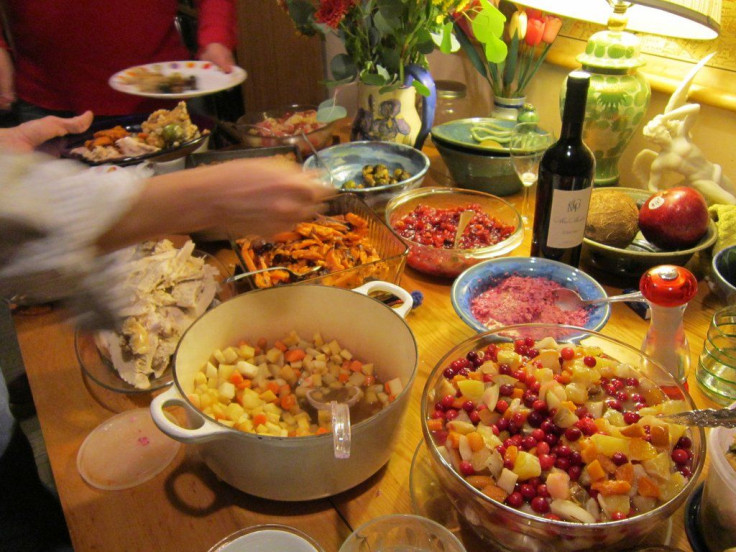Fear Of Food Waste May Cause Us To Overeat; How To Avoid Tossing Food Without Weight Gain

American society has been referred to as an obesogenic culture — at least that’s what some believe — due to the increased incidence of obesity in Americans during the last 40 years. For good reason, many are quick to blame American culture for being the cause of the nationwide obesity epidemic: its emphasis on advertising, cheap fast food, a love for burgers and bacon, and a tendency to exalt the "bigger is better" mentality, from supersized sodas to big, spacious vehicles.
But many factors inisde our own homes — including the fear of wasting food — may have an effect on how much we eat.
What is the obesogenic culture or environment? In the 2007 study, which was published in the Journal of General Internal Medicine, researchers described the term as “the availability of high energy dense, palatable, inexpensive food” that is “only surpassed by the mechanized labor-saving and entertainment devices designed to keep us from moving too much.”
The obesogenic culture of America has even been described as a “current” in which humans swim, where some succeed to overcome it, but “most succumb,” Dr. David Katz wrote in U.S. News & World Report. It may seem almost impossible for Americans to snap out of society’s influence — which includes the easy accessibility of fatty, inexpensive foods — but it may be as simple as starting from your own home.
Tamara Duker Freuman, a dietitian focusing on digestive disorders, celiac disease, and food intolerances, wrote in U.S. News & World Report that a familiar scenario for single people is stocking up on shelf-stable snacks rather than buying large quantities of fresh fruits and vegetables in fear of letting those go to waste in your fridge. Freuman mentions mothers who finish the food off their children’s plates in fear of throwing good food away, or over-eating at restaurants because of a need to make expensive food worthwhile.
Freuman suggests several ways of cutting back on eating, even when it seems that throwing food away is wasteful.
- Repurpose your leftovers — “upcycling.” Freuman notes that buying smaller Tupperware items will make it less ridiculous to store one piece of chicken, some pasta, and a meatball for later use. This might be better than forcing yourself or your kids to gulp down that last meatball because you don’t want to throw it out. Finding ways to reuse leftovers — such as throwing things together in a stir-fry the next day — can be a good way to save money and food as a form of “upcycling.”
- Freeze it. Freezing food immediately after buying will ensure that your food will stay good for a longer period of time. This is especially useful for people who live alone and are afraid to buy bulks of food. Storing frozen food preserves it, reduces the need to eat it immediately, and keeps it out of reach.
- Eat restaurant leftovers for lunch the next day. The variety and quantity of restaurant meals can often be heavier and richer than simple home-cooked meals. Before filling yourself to the rim with a restaurant dish for fear of wasting money, remind yourself that you can just ask the server for a takeout box, eating half for dinner and half for lunch the next day.
- Don’t always feel guilty about throwing food away. The common qualm about throwing food away is that there are starving children all over the world — but sometimes, knowing when to toss it can be a good thing.



























